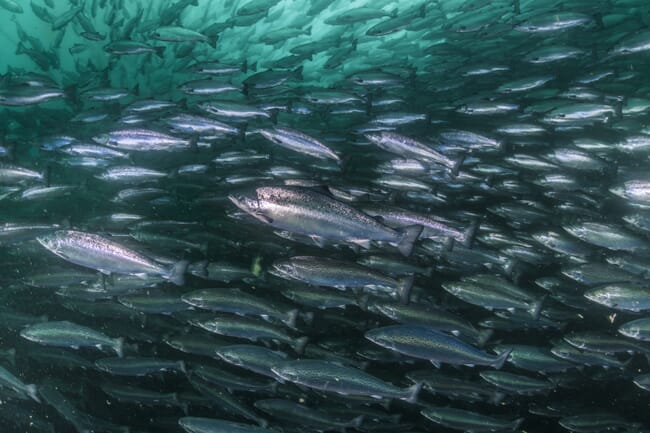Given that the new standard aims to encourage salmon producers to incorporate the use of novel feed ingredients like natural marine algal oil, it's no surprise that Veramaris strongly applauds Tesco’s move.
Indeed now that Veramaris’ commercial scale algae production facility in Nebraska is up and running, the company says that it is "ready to support the seafood industry’s increasing efforts for improved sustainability and healthy nutrition with its natural marine algae oil, which is rich in the essential omega-3 EPA and DHA fatty acids".

© Veramaris / Uli Kunz
“Value chain collaboration and a forward-thinking mindset are key to implementing sustainable breakthrough technologies, such as omega-3 EPA & DHA rich algal oil. Tesco sets an example as a prime agent of change, helping to provide consumers with healthy and sustainable choices. We are proud that algal oil rich in both omega 3 EPA & DHA in salmon feed contributes to a sustainable salmon that also supports both brain and heart health of the entire family,” stated Karim Kurmaly, CEO of Veramaris.
As the world’s third largest retailer, with over 3,400 stores worldwide, Tesco’s decisions have often helped to influence consumers and other retailers. The introduction of higher salmon standards illustrates the company’s ongoing commitment to implementing impactful sustainability measures that help to make healthy sustainable products accessible and affordable to all.
"The development of sustainable aquaculture is essential for the future of humanity's food security. Appropriate species, environment-friendly techniques, and sustainable feed supplies, such as algal oil, are surely the way ahead," says Peter Thomson, United Nations secretary-general’s special envoy for the ocean.
For the consumer, the continuous consumption of seafood creates a lifetime of health benefits. With a daily intake of more than 250mg, omega-3 EPA and DHA support the normal function of heart, eyes and brain. Within Europe, in 2016 alone, 227,000 deaths due to cardio-vascular disease were explained by a diet low in omega-3 fatty acids.



